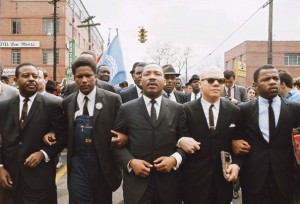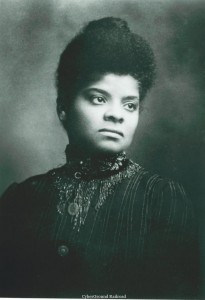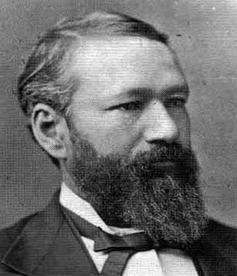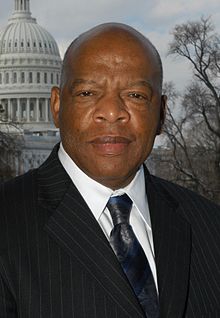Black History, Civil Rights

Angela Davis
(b. Jan. 26, 1944, Birmingham, Ala., U.S.), militant American black activist who gained an international reputation during her imprisonment and trial on conspiracy charges in 1970-72. The daughter of Alabama schoolteachers, Angela Davis studied at home and abroad (1961-67) before becoming a doctoral candidate at the University of California, San Diego, under the Marxist professor Herbert Marcuse.
Because of her political opinions and despite an excellent record as an instructor at the university’s Los Angeles campus, the California Board of Regents in 1970 refused to renew her appointment as lecturer in philosophy. (more…)
Civil Rights
The Civil Rights Act of 1964 (Pub.L. 88–352, 78 Stat. 241, enacted July 2, 1964) is a landmark civil rights and labor law in the United States that outlaws discrimination based on race, color, religion, sex, or national origin. It prohibits unequal application of voter registration requirements, and racial segregation in schools, employment, and public accommodations.
Initially, powers given to enforce the act were weak, but these were supplemented during later years. Congress asserted its authority to legislate under several different parts of the United States Constitution, principally its power to regulate interstate commerce under Article One (section 8), its duty to guarantee all citizens equal protection of the laws under the Fourteenth Amendment, and its duty to protect voting rights under the Fifteenth Amendment.
The legislation had been proposed by President John F. Kennedy in June 1963, but opposed by filibuster in the Senate. After Kennedy was assassinated on November 22, 1963, President Lyndon B. Johnson pushed the bill forward. The United States House of Representatives passed the bill on February 10, 1964, and after a 54-day filibuster, passed the United States Senate on June 19, 1964. The Act was signed into law by President Johnson at the White House on July 2, 1964 after the House of Representatives agreed to a subsequent Senate amendment to the bill passed the same day Johnson signed the bill into law.
The final vote in the House of Representatives was 290–130 with 138–34 (80%) in the House Republican Conference and 152–96 (61%) in the House Democratic Caucus with 11 members voting present or abstaining, while in the Senate the final vote was 73–27 with 27–6 (82%) in the Senate Republican Conference and 46–21 (69%) in the Senate Democratic Caucus.
– Wikipedia
Black History, Civil Rights
 A march to protest at the intimidation which prevented blacks from voting in Dallas County, Alabama. Selma, a city of 29,000, had 15,000 blacks of voting age, of whom only 355 were registered to vote. Martin Luther king chose Selma as he thought whites would resist violently and that this (through television) would draw attention to his cause and force the government to act.
A march to protest at the intimidation which prevented blacks from voting in Dallas County, Alabama. Selma, a city of 29,000, had 15,000 blacks of voting age, of whom only 355 were registered to vote. Martin Luther king chose Selma as he thought whites would resist violently and that this (through television) would draw attention to his cause and force the government to act.
Sheriff Jim Clark, like ‘Bull’ Connor in the Birmingham demonstrations of 1963, was expected to overreact, which he did. King decided to lead a protest march from Selma to the state capital of Montgomery, 56 miles away, where the participants would petition Governor Wallace to protect blacks who wanted to register to vote. (more…)
Civil Rights, Politics
John Robert Lewis, (born February 21, 1940, Troy, Alabama, U.S. — died July 17, 2020, Atlanta, Georgia), American civil rights leader and politician best known for his chairmanship of the Student Nonviolent Coordinating Committee (SNCC) and for leading the march that was halted by police violence on the Edmund Pettus Bridge in Selma, Alabama, in 1965, a landmark event in the history of the civil rights movement that became known as “Bloody Sunday.” 1
Lewis left the SNCC in 1966 and continued his work to enfranchise minorities. In 1970, he became director of the Voter Education Project. During his tenure, the VEP helped to register millions of minority voters.
Lewis won a seat on the Atlanta City Council in 1981, then the House of Representatives in 1986. As a representative of Georgia’s 5th District until his death, he was one of the most respected members of Congress. He championed healthcare reform, education improvements and he oversaw multiple renewals of the Voting Rights Act. When the Supreme Court struck down part of the law in 2013 Lewis decried the decision as a “dagger into the heart” of voting rights.
>>> Read More HERE at Biography.
1Encyclopedia Brittanica
Black History, Civil Rights

Ida B. Wells-Barnett
b.1862 – d.1931. Anti-lynching crusader, journalist, and advocate for racial justice and women’s suffrage. For Wells-Barnett, overcoming racism and halting the violent murder of black men was a central mission among her wide-ranging struggles for justice and human dignity. Born in Mississippi, she was educated at Rust University, actually a high school and industrial school. From 1884 to 1891, she taught in a rural school near Memphis and attended summer classes at Fisk University in Nashville.
A pattern of resistance to racial subordination was set early in Wells’ life. In 1887, she purchased a railroad ticket in Memphis and took a seat in the section reserved for whites. When she refused to move, she was physically thrown off the train. She successfully sued the Chesapeake and Ohio Railroad for damages. Upon appeal, however, the Supreme Court of Tennessee reversed the lower court’s ruling. (more…)

Black History, Civil Rights

Homer Plessy
Plaintiff for a landmark Supreme Court case, Homer A. Plessy was born on March 17, 1863 in New Orleans. He was a light-skinned Creole of Color during the post-reconstruction years.
With the aid of the Comité des Citoyens, a black organization in New Orleans, Homer Plessy became the plaintiff in the famous Plessy v. Ferguson case decided by the U.S. Supreme Court in May 1896. The decision established the “separate but equal” policy that made racial segregation constitutional for the next six decades.
In order to challenge the 1890 Louisiana statute requiring separate accommodations for whites and blacks, Homer Plessy and the Comité des Citoyens used Plessy’s light skin to their advantage. On June 7, 1892 Plessy bought a first class ticket on the East Louisiana Railway. (more…)




